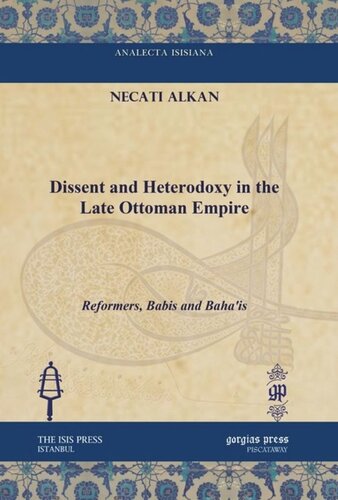

Most ebook files are in PDF format, so you can easily read them using various software such as Foxit Reader or directly on the Google Chrome browser.
Some ebook files are released by publishers in other formats such as .awz, .mobi, .epub, .fb2, etc. You may need to install specific software to read these formats on mobile/PC, such as Calibre.
Please read the tutorial at this link: https://ebookbell.com/faq
We offer FREE conversion to the popular formats you request; however, this may take some time. Therefore, right after payment, please email us, and we will try to provide the service as quickly as possible.
For some exceptional file formats or broken links (if any), please refrain from opening any disputes. Instead, email us first, and we will try to assist within a maximum of 6 hours.
EbookBell Team

5.0
30 reviewsThis monograph of the religious life of the late Ottoman Empire covers several significant features of the Turkish religious landscape. Beginning with the westernizing reforms at the turn of the nineteenth century, Alkan notes the role of the ulema in this reform before considering Sultan Abdülmecid and the Tanzimat Period. He then traces the early growth of the Babis from the rule of Necib Pasha in Iraq and the opposition to the Babis. The role of Iran in the growth of the Babi faith, focusing on the activities of Baha’u’llah characterizes the Ottoman Reform Elite. The development of Baha’i in the context of the Young Ottomans and other "fathers" of Ottoman constitutionalism is explored and Alkan considers the Iranian reformers as well as the Young Turks in relation to the Babis in nineteenth-century Istanbul. ‘Abdu’l-Baha in the Ottoman context of the turn of the century and the Kemalist reform round out the discussion. Indispensable for historians of Islamic breakaway religions, Alkan’s monograph fills a gap in many accounts of emergent religions.